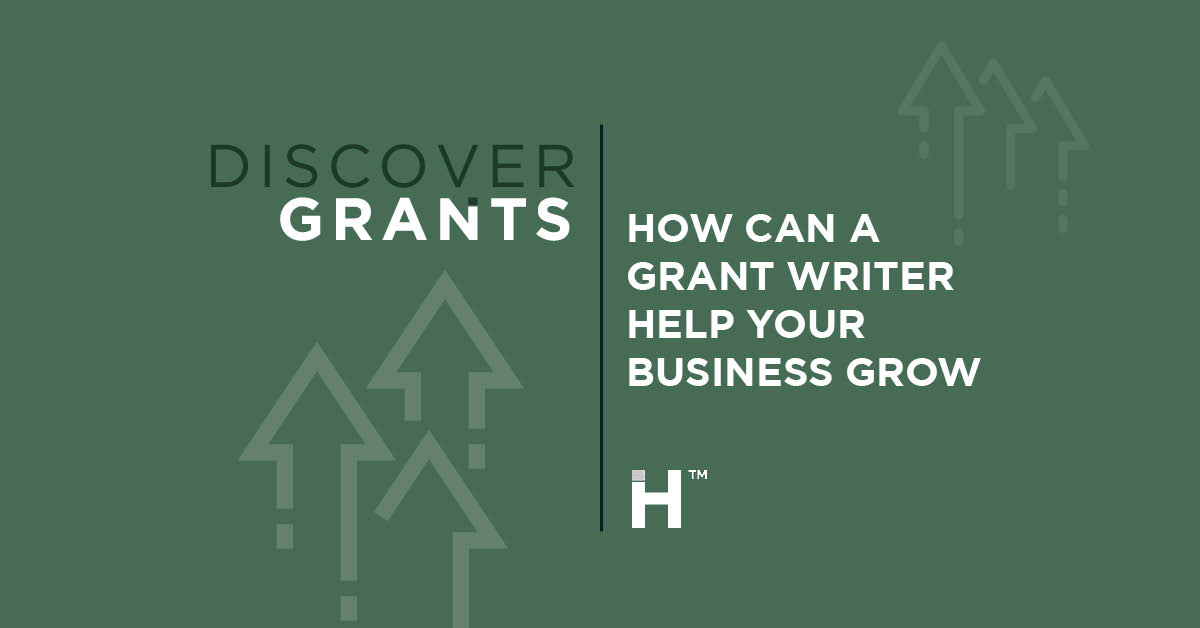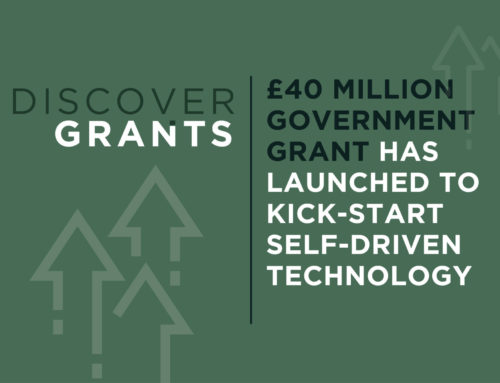How grant funding writers can help grow your business
Are you applying for grants and wondering how funding writers can benefit you? Well, you’ve come to the right place! Employing or outsourcing a grant application to grant funding writers can help optimise your success.
Securing grant funding for your business or project can be highly competitive. Depending on how niche your sector is, there could be hundreds of applicants. This means you should be looking to stand out from your competitors. That’s exactly what funding writers can help you do – work smarter, not harder.
Funding writers can also be referred to as Grant Writing Consultants. Here’s why they’re the best kept secret to winning a grant for your business:
They are experts at research
Funding writers are exceptional at researching. Working with a vast array of clients, they know how to research the field you’re in. They’ll then take all the knowledge you’ve told them, and what they’ve researched, to accurately convey it on paper.
Their day-to-day work schedule is never the same. Whether it’s working on start-up businesses grants, council business grants or grants for charities – it’s versatile to say the least! Being able to research different projects to a winning standard is certainly a skill that can be hard to come by.
However, it’s not just your industry grant funding writers research. They also need to do some research on the funder. Particularly if you’re applying for grants at a higher price point. Funders will be expecting you to do your research on them. This enables them to understand them a bit more, reading up on their background. It can help them to understand a bit more of what they’re going to be requiring outside of the specification. If you’re not exactly what they’re looking for, it may not be worth the time and resources to write the application.
They know how to write a winning proposal
Funding writers are funding writers for a reason. They wouldn’t be in the field or make a career out of something they aren’t good at. They are hired for a reason. That reason is that they know how to write a winning grant proposal.
They have a wealth of experience, and you only have one chance to impress a grant funder. Risking it on chance alone can leave you out in the cold. A professional funding writer will have a proven track record of success. This can improve your odds greatly.
Specialists in time management
Time management is essential for any funding writer. Applications for cash grants for small businesses can take a lot of time depending on the amount of funding you’re going for. If it’s a large amount, exceptional time management is crucial. Deadlines for a grant application is final and the funder won’t be accepting any late submissions. Therefore, it’s vital that you get all you’re ducks in a row accordingly.
Strict deadlines need to be met in the run-up to submitting a proposal application. Writing a proposal can be months in the making, particularly if an opportunity is only open once a year. Therefore, you often need to work together to ensure everything is ready in time. You should be wanting to submit your application before the submission deadline. You don’t want to be leaving it until the last minute. Particularly if the funding is delt on a first-come, first-served basis.
Adequate time management should take into account:
- Internal deadlines
- Rewrites
- Proofreads
- Secondary read
- Technology malfunctions (portals and technology, in general, are notoriously temperamental when it counts)
- Any unexpected delays or setbacks.
Grant funding writers usually have multiple applications on the go at any one time for their clients. As they often have inflexible deadlines, their organisational skills have to be flawless. They will ensure you have everything ready in plenty of time. This can help ensure that you aren’t submitting it with 23 seconds to spare.
Communication is key
Any funding writer could tell you that along with time management, excellent communication skills are key. They need to be able to convey and explain your business/project in the most effective way to a funder. This means they also need to know how to communicate this information to the funder in the best way possible. They know how to best present this ensuring that you go above and beyond what they require.
Grant writers are storytellers and what goes hand in hand with communication is persuasion. They must be able to persuade a funder that you’re the best option. Moreover, they’re able to communicate with you. They need to get the information they need from you to make your bid for funding the best it can be. Therefore, you must work together and give them the information they require by their agreed deadlines. They obviously want your proposal to be the best it can be, they’re not experts in your area, you are. So, they will need your input to help them get the job done if you really want to excel.
They have great attention to detail
The saying goes ‘the devil is in the detail’ and they’re not wrong, particularly when it comes to grant applications. Funding writers will be meticulous with the level of detail they will go into. If a specific process needs explaining they will break it down into steps and cover all aspects. Even those you don’t think are worth mentioning. This attention to detail will enable them to separate your bid from your competitors.
Funders are always looking for a detailed explanation. This will be especially relevant if the funder is not a specialist in your area. In this case, a lot of writers will make the assumption they will know what they’re talking about. However, this may not be the case, particularly in innovation grants. Therefore, being detail-orientated will pay off. Your application should be conveyed in Laymen’s terms to cover all bases. They will make sure that your proposal will be understood by the contracting awarding body.
Their attention to detail isn’t just in the writing aspect. A business may employ a grant funding writer to simply proofread their pre-written proposal. Your application won’t look professional if you have spelling and grammar mistakes throughout. Great attention to detail enables a writer to demonstrate why their client deserves funding. After all, it’s hard to argue with a flawless grant funding application.
Looking at it from a funders perspective
Imagine it from a grant reviewer’s perspective. You’ve got 50 applications to review, you’re tired and you’re hungry. You ideally want to have an easy to read, nicely laid out document in front of you. You would rather have that to review, than pages of a solid block of text.
Funding writers understand this, and some have even been on that side of the fence. The following can help make proposals easier to read:
- White space
- Headings
- Subheadings
- Bullet points
- Illustrations
- Graphs
If you’ve never written a proposal before, it can be hard to find the balance. Obviously, you want to get all the information you can into the document. However, you should never go over the word count. They are there for a reason and funding writers know this. This is a major faux pax and will likely put you in the reviewers’ bad books. Not only is it giving them more to read, but it makes it unfair for other applicants.
The benefits of hiring grant funding writers
They know what not to do
Funding writers know what not to do when it comes to grant proposals, for example:
- Apply last minute: temperamental technology can result in all your hard work going to waste.
- Submit in the wrong format: grant awarding bodies won’t consider any applications that are to the specifications they detailed. If you emailed your application over a portal submission, they won’t consider it.
- Miss out any questions: Missing out questions because you can’t answer them will automatically look bad. It just looks lazy. If you can’t answer a question, the funding opportunity probably isn’t a good fit for your business/project.
- Use overly technical jargon: A funder may not be a specialist in your area. Unexplained overly technical jargon might make them confused. This won’t gain you any points for showing off, if anything it will do the opposite. Funding writers know this and explain any technical details your proposal requires.
3 things to remember when applying for any grant funding opportunity
-
Make sure it aligns with your objectives, not the other way around
The first thing before you look into hiring a funding writer, however, is find a suitable grant. You should find a grant programme that fits your idea. If you think, or the funding writer thinks your proposal feels like a stretch reading the guidelines, it probably is.
Some grants have geographic limitations or specific funding goals and objectives that need to be met. If you are wanting to be successful with your application, you should already be aiming to meet these. These will always be stated in the funding guidelines or eligibility criteria. It is important you read these thoroughly (even if they’re 50 pages). If your project/business is not a good fit for a particular opportunity, you should keep looking. Don’t waste time or resources on an application you don’t feel like is the perfect fit for a funding opportunity.
-
Demonstrate innovation, value for money and sustainability
Funders will always be looking to see how their money and your solution will have a lasting impact. They want to know that their money will contribute towards a long-lasting solution. They want to support businesses or projects that want to help get to the route of an issue. Fixing it from the ground up.
Therefore, proposals should demonstrate innovation, sustainability and value for money (particularly for government grants). Your proposal should include the beneficial social, environmental and economic factors. Measurable outcomes and objectives are always favoured. This is something in which grant funding writers are experts in, increasing your chances of success.
More often than not, the winning proposal will have some sort of original innovative solution. Ground-breaking and exciting solutions that lead the way in your field is what funders are looking for. Question if your organisation has a truly unique solution to an issue.
-
Realistically evaluate the running costs
You should be pricing your services right when you’re applying for funding. Price your product/business right. Grant awarding bodies want to be sure you aren’t going to spend their money on unnecessary things. You should demonstrate that you have managed cash flow successfully. They will be expecting you to show you have a sound methodology for financial management. Realistically evaluating the running costs will help reassure them that their money is in safe hands. You should consider the following running costs:
- A cash flow analysis for the use of money
- A business plan for the implementation of the project
- The financial controls and safeguards you have in place
- A fully costed project
- Previous annual report
- Your organisation’s annual income and expenditure
- The degree of financial skills and knowledge within your company.
So, now you know how funding writers can help you increase your chances of success when applying for grants. They are the best kept secret to securing funding for your project of business. Outsourcing your grant application can help you work smarter, not harder.
Need help securing your next bid for funding?
Our Grant Writing Service is for businesses who want to start applying for grants, but don’t know where to begin. If you don’t have the resources or the time in-house to write a winning grant – we can help.
Our Grant Writing Consultants have over 60 years of experience in bidding for funding and grants. They can take care of the whole thing for you – they’ll even submit it on your behalf.
Get in touch to find out how we can help your business grow!
You can access our Grant Tracker service which hosts all the latest grant opportunities in the UK from 1,500 data points. Opportunities are manually tracked, enabling for accurate keyword labelling, optimising your search for the perfect grant. This can help you optimise your search for grants for businesses.
Sign up today!
Find more helpful tips and advice in our blogs. We cover topics including:





